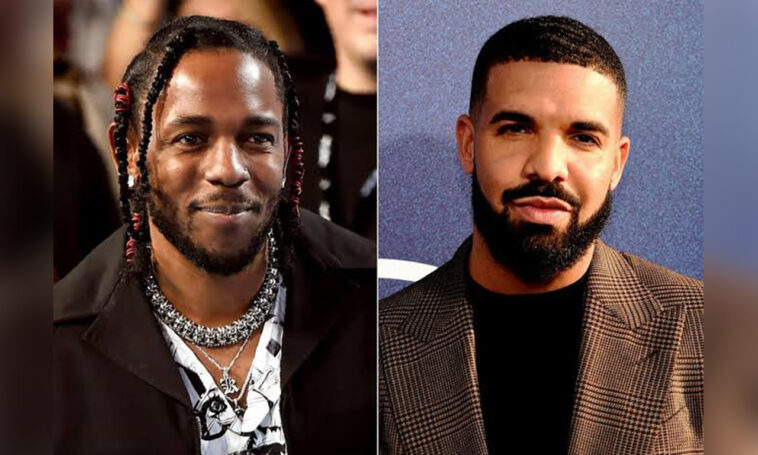Drake’s company, Frozen Moments LLC, has filed a motion accusing Universal Music Group (UMG) and Spotify of engaging in illegal practices to artificially boost the numbers of his song Kendric Lamar’s “Not Like Us.” The motion, filed on November 25, 2024, in Manhattan court, claims that UMG used bots and payola to manipulate streaming and radio play. It also accuses UMG of paying radio stations to promote the song. The motion raises concerns over deceptive business practices and violations of the Racketeer Influenced and Corrupt Organizations Act (RICO). This isn’t the first time UMG has been involved in such allegations, as a similar case occurred in 2006.
Drake has made a serious accusation against Universal Music Group (UMG) and Spotify, claiming that the two giants have engaged in a “pay for play” scheme to manipulate the success of his song “Not Like Us.”
“On November 25, 2024, Drake’s company, Frozen Moments LLC, filed a motion in Manhattan court that outlines a series of alleged illegal actions.”
These actions include the use of bots, payola, and other deceptive practices to artificially inflate streaming numbers and radio play for the track.The motion filed by Drake’s company details allegations that UMG paid radio stations to play Kendric’s “Not Like Us” more frequently, a practice known as payola, which is illegal under both federal and state laws. The motion also suggests that bots were used to generate fake streaming numbers on platforms like Spotify, further inflating the song’s popularity. This would constitute a breach of New York state law, particularly in regard to deceptive business practices and false advertising.
The legal filing also invokes the Racketeer Influenced and Corrupt Organizations Act (RICO), a powerful federal law used to target organized crime. According to the motion, the activities related to “Not Like Us” could be seen as part of a larger criminal enterprise that violates the RICO Act. However, it’s important to note that the motion is not yet a formal lawsuit but rather a “pre-action” petition. This means that it’s a step taken to gather information and determine whether a lawsuit should follow.
In addition to the allegations surrounding the song “Not Like Us,” the motion brings up previous instances in which UMG has been accused of engaging in similar conduct. Notably, in 2006, UMG was forced to settle a payola case to the tune of $12 million after it was revealed that the company had bribed radio stations to promote their artists’ songs. This previous case adds weight to Drake’s accusations, suggesting that such practices may not be new for UMG.
Although the motion has made headlines, neither UMG nor Spotify has publicly responded to the allegations as of the afternoon of November 25. This silence has left many wondering how these powerful companies will address the claims, especially given the serious nature of the accusations. If proven true, the actions described in the motion could have significant legal and financial consequences for both UMG and Spotify.
The motion filed by Drake’s company raises broader questions about the influence of money and technology in the music industry. With streaming platforms like Spotify and major record labels like UMG holding immense power in determining which songs succeed, concerns over transparency and fairness in the music industry have been growing. Accusations of artificial manipulation of streaming numbers are not new, and Drake’s legal move shines a spotlight on what some believe are widespread problems within the industry. If these practices are allowed to continue, critics argue, it could undermine the integrity of the music business as a whole.
As of now, the motion has not led to a lawsuit, and it remains to be seen whether Drake and his team will proceed with formal legal action. However, this case is likely to have implications for the way the music industry operates, particularly regarding the practices used to promote songs in a digital age. Whether or not the case leads to legal consequences, it has already drawn attention to issues like payola and bot manipulation, which could spur further scrutiny of how music streaming and radio play are conducted.
Drake’s motion is just the latest example of an artist standing up against perceived injustice in the music industry. While UMG and Spotify have yet to comment, the case highlights the ongoing struggle for fairness in the business, where major players hold vast control over the success of artists and their work.
Drake’s representative made a statement that underscores the seriousness of these claims: “We are committed to ensuring that the integrity of the music industry is maintained and that artists can succeed based on their talent, not manipulated numbers.”
This case could serve as a turning point for the way the music industry handles promotions and artificial manipulation. Artists like Drake are now increasingly aware of the influence that major labels and streaming services have over their careers. As the case continues, it could prompt broader changes in how streaming services and labels interact with artists and their music.




One Comment
Leave a ReplyOne Ping
Pingback:Universal Music Seeks Dismissal of Drake Lawsuit
Join the Community and Be a Part of the Conversation
You must be logged in or registered to post a comment.